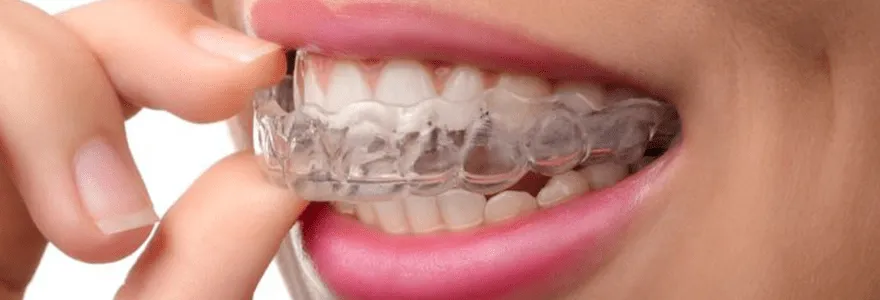 Mouth guards cover your gums and teeth to help keep your mouth and teeth from harm. Mouth guards should be used to keep you safe when you play contact or highly physical sports. They also help to reduce the effects of teeth clenching or grinding. In all cases, the goal of mouth guard use is to help you keep your teeth from being chipped or broken, prevent nerve damage, and avoid tooth loss. Also, mouth guards are used for some tooth whitening procedures.
A sports mouth guard can prevent serious injuries such as concussions, cerebral haemorrhages, incidents of unconsciousness, jaw fractures, and neck injuries by helping to avoid situations where the lower jaw gets jammed into the upper jaw. Mouth guards are effective in moving soft issue in the oral cavity away from the teeth, preventing laceration and bruising of the lips and cheeks, especially for those who wear orthodontic appliances.
Types of Mouth Guards
Mouth guards cover your gums and teeth to help keep your mouth and teeth from harm. Mouth guards should be used to keep you safe when you play contact or highly physical sports. They also help to reduce the effects of teeth clenching or grinding. In all cases, the goal of mouth guard use is to help you keep your teeth from being chipped or broken, prevent nerve damage, and avoid tooth loss. Also, mouth guards are used for some tooth whitening procedures.
A sports mouth guard can prevent serious injuries such as concussions, cerebral haemorrhages, incidents of unconsciousness, jaw fractures, and neck injuries by helping to avoid situations where the lower jaw gets jammed into the upper jaw. Mouth guards are effective in moving soft issue in the oral cavity away from the teeth, preventing laceration and bruising of the lips and cheeks, especially for those who wear orthodontic appliances.
Types of Mouth Guards
- Stock mouth guards – Low cost stock mouth guards can be found at most department stores and sporting goods stores. This type is ready to use, but they do have a few down sides. Most dentists do not advise their use. The drawbacks include trouble related to proper fit as well as the ability to speak and breathe comfortably. This type offers the least defence for your mouth and teeth.
- Boil and Bite Mouth Guards: This type is made from a kind of plastic that can be reshaped when heated. Boil and bite mouth guards can often be found at sporting goods stores, and they may fit better than stock mouth guards.
- Custom-fitted Mouth Guards: This type is made in a dental office or lab for the person who will wear it. It offers the comfort and protection. Custom-fitted guards are also the most costly type due to the use of special materials and the time and work needed.
Our Score
Click to rate this post!
[Total: 0 Average: 0]

